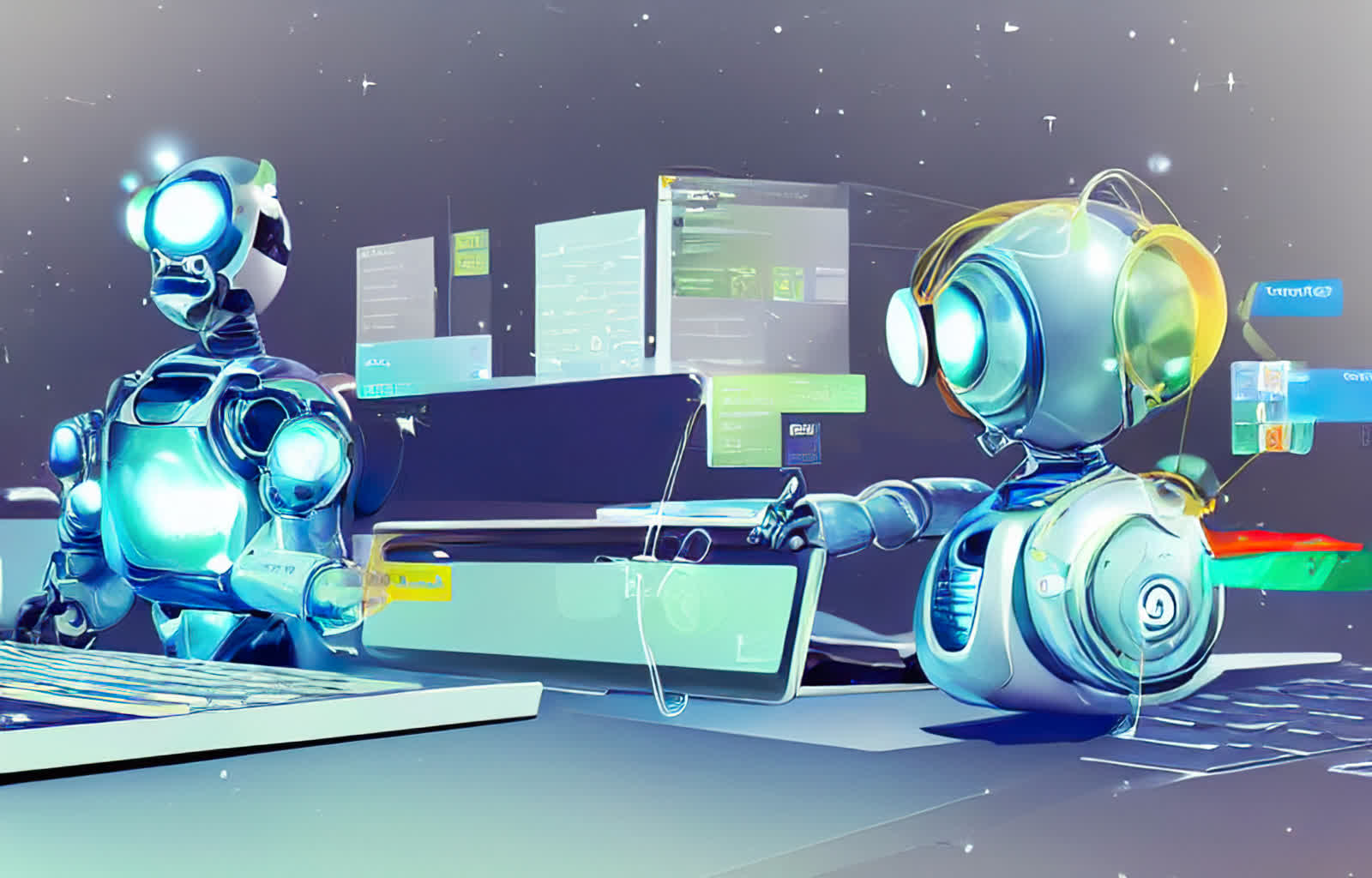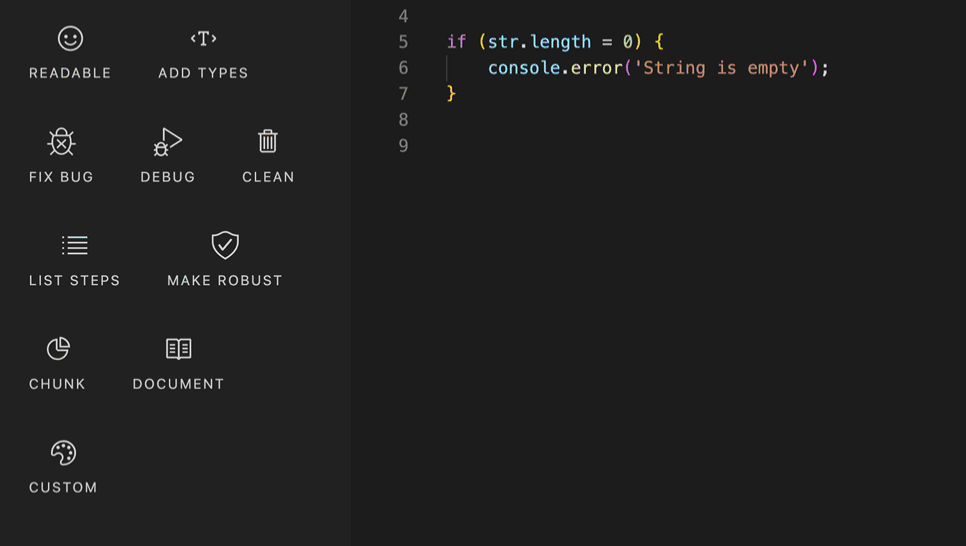In context: Even if you don't intend to follow tech industry trends for the new year, it's impossible not to notice all the attention directed towards generative AI tools such as OpenAI's ChatGPT. This cloud-based chatbot, creative co-pilot, programming partner, and all-around digital companion has become so popular that it's nearly impossible to get to. In fact, the company now has clever AI-generated limericks and other funny content on the main access page for their service to soften the frustrating blow of not being able to try it out.
There's been important movement by major tech companies to leverage (or react to) the incredible degree of interest the foundational large language model-based service has ignited, not only in the tech industry but the general populace as well.
Microsoft, a big early investor in OpenAI, creator of ChatGPT, and the Dall-E image creation tool, has been notably aggressive in announcing wide support for the service, with CEO Satya Nadella making bold proclamations to that effect. Nadella said that Microsoft will be making ChatGPT widely available on its Azure cloud platform and intends to integrate its capabilities across many of Microsoft's products, including Office and Microsoft 365, the Bing search engine, and more. Other companies, including Google, are widely rumored to be scrambling to create competitive offerings based on their own efforts.
These applications are intended to let non-programmers create their own applications
One area that hasn't been specifically mentioned in most of these discussions is low code/no code tools, such as Microsoft's Power line, Zoho, Salesforce, Oracle and others. These applications are intended to let non-programmers create their own applications, application extensions, sophisticated macros, and much more. In the end, however, I think it's exactly tools like these that could be the biggest beneficiaries of tools like ChatGPT.
Part of my belief and enthusiasm for this development stems from a little-known characteristic of ChatGPT. That latest version is based on version 3.5 of the GPT large language model. One of the most important new characteristics of this new version is that it was built not only with text-based content gleaned from Internet-based web spider crawls, but programming code as well. In fact, there are some who have posited that the impressively "realistic" output from ChatGPT is due to its incorporation of code examples, and the logic behind them, into its most recent model. The idea is that the logical structure that the model "learned" from being trained on software code has helped it create more cogent points and more tightly organized reactions to various queries.
The integration of code-based training has also led many programmers to try the tool out as a means to generate code for the applications they're working on in a faster and more efficient manner. Early results suggest that generative AI tools are not quite ready for prime time on this front, with many professional programmers complaining about the errors and/or inefficiencies of the code that ChatGPT created though.
As I think through the opportunities, however, it seems like low code/no code tools could be an ideal fit for generative AI. The plain truth is that despite the many efforts companies like Microsoft and many others have made to simplify their low code/no code-focused applications and app extensions, they're still hard to understand and use by all but the most sophisticated users. In order to really reach and draw the attention of the crew of "citizen developers" that many companies believe are willing/able to leverage these kinds of tools, they have to be made much easier to use.
This is where the intelligent analysis and creative output capabilities of something like ChatGPT come into play. Imagine, for example, the ability to simply describe what it is that you want a particular application, macro or app extension to do and then have the AI-powered tool quickly generate the code/macros necessary to make that description come to life. There are huge numbers of people who know what it is they want a given application or macro to do, but don't necessarily know how to create it. The output from an appropriately trained, generative AI-powered tool, however, could go a long way towards overcoming this challenge.
These tools could end up generating either a completely functional version of what the "citizen developer" had in mind, or at least the vast majority of it, making the goal of enabling a huge new base of specialized, but highly efficient applications much more plausible. In the process, this could open up the exciting possibilities and promise of low code/no code tools to a significantly wider audience.
Also read: AI will go mainstream in 2023
The potential impact of this is huge. Allowing a massive new range of brains, eyes, and ears to tackle the challenge of creating new capabilities or new perspectives within a given application (or even entirely new applications) opens up the true promise of what low code/no code tools were intended to do. Plus, it's incredibly empowering for users to have more influence and control over the applications they use on a regular basis. This is a degree of tech democratization that even many of the most fervent believers in the low code/no code movement likely didn't expect to see for quite some time.
Of course, talking about the potential of a given technology and then seeing the reality of how it's implemented are often two very different things. Still, it seems like generative AI could be the breakthrough technology that finally brings the intriguing promise of low code/no code tools and citizen developers to life.

